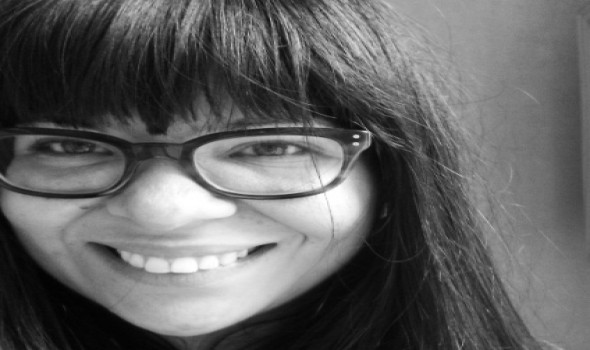Norma Fonseca on: Home and Choice: The encouragement of refugees for inner peace
Norma Fonseca on: Home and Choice: The encouragement of refugees for inner peace

When you think about refugee issues, you cannot avoid thinking about HOME and CHOICE, in the sense of having the power of deciding and also the right of living, being and enjoying your home. This is the essential part of creating your identity. The continuous process of defining ‘who one is’ in the social context have two levels, the first is the individual, the personality that encompasses terms like character, self and psyche (Côte, 1996). The second level is the social context, defined by Howard (2000) as the societal structures and practices in which those networks are embedded. Identity might be explained as a cycle where social structures influence the ways of perceiving the ‘self’ to the ways in which individuals define their own social role. This means the influence of culture, nationalities and collective psyche in our behaviours and the power of choice. I always believe you make your home and it does not have to be related to the place you were born but you call Home to the place you always want to “come back”. So, what happens when you are running away from home? When you lost your home? When you arrive to a country that you did not choose? When you feel nobody wants you? When you are labelled as a ‘refugee’? These cases as many others have a great impact on creating yourself. Drawing by a Salvadorean child refugee from 'Out of the Ashes: The lives and hopes of refugees from El Salvador and Guatemala' Taking the definition of ‘refugee’ used in The Geneva Convention of 1951 and remains in use today: "A person who has a well-founded fear of persecution; or a person who is a victim or potential victim of persecution because of race, religion, nationality, membership in a particular social group, or of a particular political opinion, is outside the country of his nationality and is unable or, owing to such fear, is unwilling to avail himself of the protection of that country; or who, not having a nationality and being outside the country of his former habitual residence as a result of such events, is unable or, owing to such fear, is unwilling to return to it. (UNHCR: Article 1, 1951) The subject of refugee is so connected to international relations, global conflict, immigration policies and local economy that take too lightly the importance of inner peace. Therefore, when Refugee Week UK launched their 2013 theme as “Our History and Heritage”, I could not avoid thinking about the great influence of people struggling to find inner peace amongst applications, law limitations and negative perceptions on this nation. I tweet over this week: “#Refugees & #asylumseekers are great examples of #courage #innerpeace #admirable People that we definitely need in here! #UK #refugeeweek” My thoughts were confirmed when I had the opportunity to share time with an admirable person who has been waiting for a response over 5 years in Scotland. When I looked to his eyes, I saw strength, fear and uncertainty. I tried to put myself into his shoes and imagined waking up every day far away from home and not having the choice to move on, creating my life and neither defining my social role through the right to work. I also became very motivated by going to the screen of the film ‘Making It Home’ and especially with this poem: Choice Digging a bush up, pitching in To damp earth, getting out Clutch-arms and fingerprint veins As easily broken as silk I look into the mica eyes Of a robin. This is what we say We all want. The choice- to go, to stay. But how does a robin decide? How does anyone? By Ruth Padel from the Mara Crossing. Chatto & Windus, 2012. I liked ‘Making It Home’ project with the idea of connecting people from Scotland who has experienced lost. The stories of life are always the best Peaceformance of making us to realise that we are all connected. I am impressed by persistent people who will try from the bottom of their heart to adapt and believe in the warm feeling of home. These encouragements are the greatest contribution to the UK besides some others such as: • Immigrants, including refugees, pay more into the public purse compared to their UK born counterparts. (Institute for Public Policy Research, Paying their way: the fiscal contribution of immigrants in the UK, 2005) • An estimated 30,000 jobs have been created in Leicester by Ugandan Asian refugees since 1972. (The Observer, They fled with nothing but built a new empire, 11 August 2002) • About 1,200 medically qualified refugees are recorded on the British Medical Association’s database (BMA/Refugee Council refugee doctor database, 4 June 2008) • It is estimated that it costs around £25,000 to support a refugee doctor to practise in the UK. Training a new doctor is estimated to cost between £200,000 and £250,000. (Reaping the rewards: re-training refugee healthcare professionals for the NHS, October 2009 NHS Employers) • Asylum-seeking children contribute very positively to schools across the country. This in turn enables more successful integration of families into local communities. (Office for Standards in Education, The education of asylum seeker pupils, October 2003) Norma Fonseca Is a social researcher interested in nonviolence and story sharing approaches for peace building, intern at Edinburgh Peace and Justice Centre. Born in Colombia and living in Scotland for the last 5 years. Follow more posts in http://peaceformance.blogspot.co.uk/ Twitter @N_FonCK This article first appeared on: http://peaceformance.blogspot.co.uk/2013/06/homeandchoice.html


